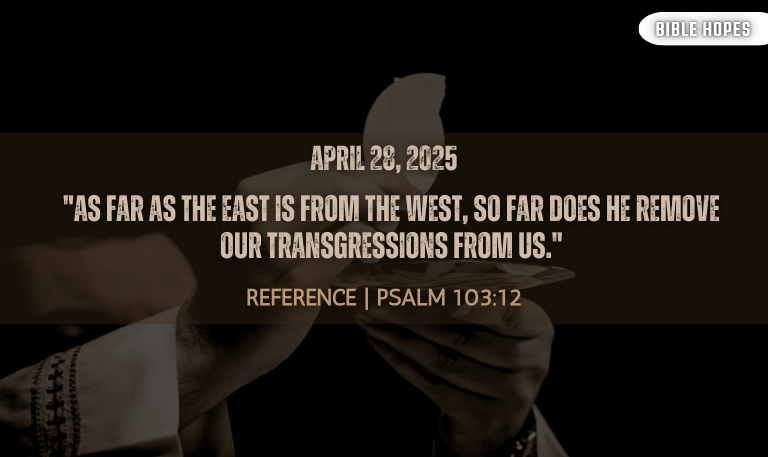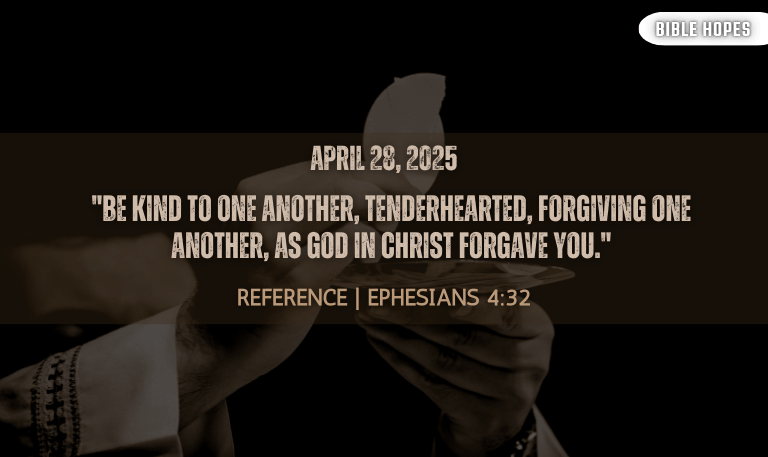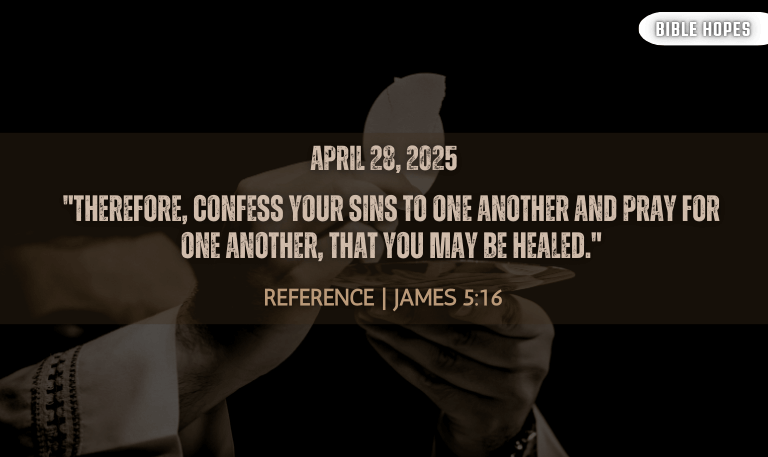Forgiveness is one of the core teachings of Christianity, deeply embedded in the Bible’s message of grace, mercy, and love. Throughout the scriptures, forgiveness is presented as a powerful tool for personal growth, reconciliation, and spiritual healing. The Bible provides numerous verses that guide believers on how to forgive others, how to ask for forgiveness, and how to understand God’s forgiveness toward humanity.
In this article, we will explore the Bible verses about forgiveness, drawing on key verses from both the Old and New Testaments. We’ll also discuss the profound spiritual and emotional benefits of practicing forgiveness, how it can heal broken relationships, and how you can apply these principles in your daily life.
Understanding Forgiveness in Christianity
What is Forgiveness in the Bible?
In Christian doctrine, forgiveness refers to the act of pardoning someone who has wronged you or has caused harm. It is an essential element of God’s grace and mercy toward humanity. In the Bible, forgiveness is not just about releasing someone from a debt or offense but is often associated with reconciliation, healing, and restoration.
Theologians often describe biblical forgiveness as the cancellation of a moral debt owed by the sinner to God or to another person. This forgiveness is not earned but given freely, as a reflection of God’s boundless mercy and love.
Theological Significance of Forgiveness
Forgiveness in Christianity is intertwined with the concepts of salvation and divine grace. It is a reflection of God’s ultimate forgiveness of humanity through the sacrifice of Jesus Christ. Forgiveness is central to the Christian faith, as believers are taught that by forgiving others, they demonstrate God’s love and mercy in action.
Moreover, the Bible teaches that those who forgive will themselves be forgiven by God. In this way, forgiveness is not just a moral duty but a spiritual necessity that affects one’s relationship with God.
Read Also: Weird Bible Verses
Key Bible Verses on Forgiveness
Forgiveness in the Old Testament
Genesis 50:19-21 – Joseph Forgives His Brothers
“But Joseph said to them, ‘Do not fear, for am I in the place of God? As for you, you meant evil against me, but God meant it for good, to bring it about that many people should be kept alive, as they are today. So do not fear; I will provide for you and your little ones.’ Thus he comforted them and spoke kindly to them.”
In this passage, Joseph forgives his brothers who betrayed him, showing that forgiveness is about recognizing God’s sovereignty in our lives and letting go of bitterness.
Psalm 103:12 – God’s Forgiveness of Sins

“As far as the east is from the west, so far does he remove our transgressions from us.”
This verse emphasizes the boundless nature of God’s forgiveness, removing our sins completely, never to be remembered again.
Isaiah 1:18 – God’s Invitation to Forgiveness
“Come now, let us reason together, says the Lord: though your sins are like scarlet, they shall be as white as snow; though they are red like crimson, they shall become like wool.”
God invites sinners to come and seek forgiveness, offering complete restoration and purity.
Read Also: Bible Verses for Miscarriage
Forgiveness in the New Testament
Matthew 6:14-15 – The Lord’s Prayer and Forgiveness
“For if you forgive others their trespasses, your heavenly Father will also forgive you; but if you do not forgive others their trespasses, neither will your Father forgive your trespasses.”
In the Lord’s Prayer, Jesus teaches that forgiveness is essential for receiving God’s forgiveness. Our willingness to forgive others reflects our understanding of God’s grace.
Ephesians 4:32 – Be Kind and Compassionate

“Be kind to one another, tenderhearted, forgiving one another, as God in Christ forgave you.”
This verse urges believers to forgive one another just as God forgave them through Christ, highlighting the role of compassion in forgiveness.
Luke 23:34 – Jesus Forgives on the Cross
“And Jesus said, ‘Father, forgive them, for they know not what they do.'”
Jesus exemplified ultimate forgiveness while being crucified, even asking for the forgiveness of those who were responsible for his death.
Colossians 3:13 – Forgiving as the Lord Forgave You
“Bearing with one another and, if one has a complaint against another, forgiving each other; as the Lord has forgiven you, so you also must forgive.”
Here, the Apostle Paul emphasizes that forgiveness is a Christian obligation that stems from God’s forgiveness of our sins.
Read Also: Best Order to Read the Bible
The Power of Forgiveness
Why Forgiveness is a Divine Act
Forgiveness in the Bible is not merely a personal or relational decision; it is a divine act that reflects God’s love and mercy. When we forgive, we mirror God’s forgiveness toward us, demonstrating His character in our interactions with others.
How Forgiveness Heals Relationships
Forgiveness is vital for healing broken relationships. Holding onto anger and bitterness creates division, but forgiveness fosters reconciliation and peace. It opens the door for restoration, allowing both parties to move forward in love and mutual respect.
Forgiveness as a Tool for Spiritual Growth
Forgiving others can also lead to significant personal and spiritual growth. Letting go of past hurts and releasing negative emotions frees us to experience God’s peace and joy more fully. The process of forgiving helps believers to grow in humility, patience, and love.
The Role of Forgiveness in God’s Plan
The Biblical Foundation of God’s Forgiveness
From Genesis to Revelation, the Bible portrays God as a loving and forgiving Father who desires reconciliation with His creation. God’s forgiveness is extended to all who seek it, regardless of the severity of their sins. This forgiveness is made possible through the atoning sacrifice of Jesus Christ on the cross.
The Role of Jesus Christ in the Forgiveness of Sins
The ultimate act of forgiveness in Christian theology is found in the death and resurrection of Jesus. Through His sacrifice, Jesus paid the price for humanity’s sins, offering forgiveness and salvation to all who believe in Him.
How to Forgive According to the Bible
Practical Steps to Forgiveness
- Acknowledge the Hurt – Forgiveness begins with acknowledging the pain or wrong done to you. Denying or suppressing hurt can hinder the healing process.
- Choose to Forgive – Forgiveness is a choice, not a feeling. You may not feel ready, but the Bible calls us to forgive even when it’s difficult.
- Pray for the Strength to Forgive – Ask God to help you forgive, recognizing that you cannot do it on your own.
- Release the Offense – Forgiveness involves letting go of the offense, allowing God to handle the consequences.
- Seek Reconciliation – If possible, seek to restore the relationship with the person who hurt you.
The Importance of Repentance in Forgiveness
True forgiveness also requires repentance. The Bible teaches that we must seek God’s forgiveness with a sincere heart, turning away from sin (1 John 1:9). Without repentance, forgiveness cannot be complete, as it involves a change of heart and mind.
Forgiveness and Healing in the Bible
Emotional and Spiritual Healing Through Forgiveness
Forgiveness has powerful healing properties. It can release us from the emotional burden of resentment, anger, and pain. Forgiving others doesn’t necessarily mean excusing their behavior, but it allows us to experience God’s peace and freedom.
Read Also: Bible Scriptures on Walking With God
Bible Verses About Healing and Reconciliation
Matthew 5:23-24 – Reconciliation Before Worship “So if you are offering your gift at the altar and there remember that your brother has something against you, leave your gift there before the altar and go. First be reconciled to your brother, and then come and offer your gift.”
James 5:16 – Confession and Healing “Therefore, confess your sins to one another and pray for one another, that you may be healed.”

These verses emphasize the role of reconciliation and confession in experiencing emotional and spiritual healing.
Bible Verses About Forgiveness FAQs
Q: Why is forgiveness so important in Christianity?
A: Forgiveness is essential because it reflects God’s grace toward us. Jesus taught that forgiveness is necessary for salvation and reconciliation with God.
Q: Can you forgive someone who doesn’t ask for forgiveness?
A: Yes, forgiveness is an act of obedience to God, even if the other person does not repent. Jesus commanded us to forgive regardless of the offender’s actions (Matthew 5:44).
Q: What does the Bible say about forgiving someone who repeatedly hurts you?
A: The Bible teaches to forgive as many times as needed. In Matthew 18:21-22, Jesus instructs us to forgive seventy-seven times, symbolizing limitless forgiveness.
Q: What is the difference between forgiving and forgetting?
A: Forgiveness is the conscious decision to release someone from the debt they owe you emotionally or spiritually. Forgetting is not an obligation but a process that can come with time and healing.
Q: How can forgiveness change my life spiritually?
A: Forgiveness can bring spiritual peace, heal relationships, and draw you closer to God. It’s a key aspect of living out the Christian faith, as it aligns your heart with God’s will.
Conclusion
Forgiveness is a central theme in the Bible, essential not only for personal salvation but also for fostering reconciliation and healing in relationships. By embracing forgiveness, Christians embody the love and mercy of God, who forgives freely and completely. Forgiveness is transformative—it heals hearts, restores relationships, and brings peace to those who practice it. Whether you are struggling with forgiveness or seeking to deepen your understanding of it, the Bible offers profound wisdom and guidance that can help you navigate this essential Christian teaching.

![15 Bible Verses About Wicked Government [2025 Explained] 12 15-Bible-Verses-About-Wicked-Government-[2025-Explained]](https://biblehopes.com/wp-content/uploads/2025/05/15-Bible-Verses-About-Wicked-Government-2025-Explained.png)

